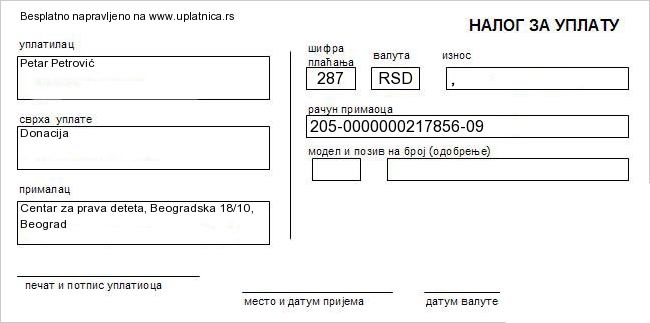
Source: ChildHub – Child Protection Hub
Every child is different, so must be the support we offer them.
In theory, everyone agrees. In practice, too often the needs of children involved in criminal proceedings are not properly assessed or considered.
And yet, EU laws guarantee that every time children are in contact with the law, their needs and best interest should be assessed on an individual basis as a top priority.
It’s a children’s right: all professionals involved must ensure that it is always the children’s reality.
When asked what child-friendly justice is, a 16-years old Serbian boy replied:
“A system adjusted to every child, where an individual counts.”
This is the essence of FOCUS on my needs: working together for children in criminal proceedings, a two-year project led by Terre des Hommes in collaboration with Child Circle, Child Rights Centre (Serbia); Defence for Children (The Netherlands); Institute of Social Activities and Practices (Bulgaria); Terre des hommes Romania and Terre des hommes Hellas. The project is co-funded by the Rights, Equality, Citizenship Programme 2014-2020 of the European Union.
Mixing research, training, knowledge sharing and children’s empowerment, FOCUS uses an innovative, hands-on approach to strengthen the use of multidisciplinary Individual need assessment among child justice professionals.
When a child is involved in criminal proceedings, as a victim or offender, relevant professionals in the field of child justice and protection should act and analyze together all aspects of the child’s life, identifying his or her strengths and vulnerabilities.
An individual needs assessment is a precious tool to achieve child-centred justice, as it ensures that each case management starts from and focuses on the child’s needs, improving access to fair, child-friendly justice.
Through the FOCUS project, Terre des hommes (Tdh) and its partners are developing quality standards and assessment tools for professionals and building their capacity to work in a multidisciplinary way on individual assessments of children involved in criminal proceedings, starting from the experiences shared by the children.
For instance, children and young people in contact with the law recounted how, in some cases, they have been physically and emotionally mistreated, could not contact family members or had to wait even for months to get psychological assistance, highlighting the need for training on child-friendly and child-centred justice.
“Often the police or law enforcement officers forget that they are dealing with minors”, says Mihai Enache, project manager of the FOCUS project for Romania “Each specialist interrogates them separately, so children or teens become intimidated and can tell a slightly different version each time, which makes the interrogator even more aggressive. The circle of violence and re-victimization is thus encouraged without taking into account the rights of children”.
In Romania, more than 50 professionals have been trained, while 63 experts attended the training in Serbia, and 23 in the Netherlands, including judges, prosecutors, social workers, psychologists, and Ministries representatives.
In the Netherlands, children actively participated in the trainings. In fact, children are not mere beneficiaries of the FOCUS project: they are agents of change. Children have a voice in every step of the process, thanks to the Child Advisory Boards (CABs) set in the focus countries (Greece, Bulgaria, Serbia, Romania, The Netherlands) and comprised of children and young people typically aged between 12 and 25 years, with various experiences with the justice system. They share their experiences, review the assessment methodology and lead the creation of advocacy materials on children’s rights, becoming their own advocates among professionals and peers alike. The members of the Dutch Child Advisory Board created a video showed during the training, and four of them attended one session during which they asked the enthusiastic professionals to share their ideas and insights on when they think young people feel being heard, and answered questions on how to start an advisory board in their own organization and what is needed to do an assessment with children.
More online and face-to-face trainings are planned in Bulgaria and in Greece and will follow a similar, hands-on approach: the sessions mix theory and practices, offer pragmatic solutions to real-life issues and allow space for discussion and group work on how to improve access to justice for every child. For instance, during the Dutch training, the participants decided to organize a monthly meeting and decided the topics to be discussed for each of them.
This idea is yet another confirmation that professionals need to create a space for them to meet and discuss good practices, experiences, challenges and ways to overcome them.
To respond to this need, and to keep providing training and guidance beyond the project duration and in-person reach, FOCUS partners are working on a multilingual online platform connected with ChildHub and Justice with Children. The platform will host e-learning modules, relevant tools and resources to improve and systematize individual needs assessment among child law practitioners and an online forum for professionals to connect, share their knowledge and discuss their issues.
For more information about the FOCUS project, please contact Orinda Gjoni, FOCUS Project Coordinator, orinda.gjoni@tdh
